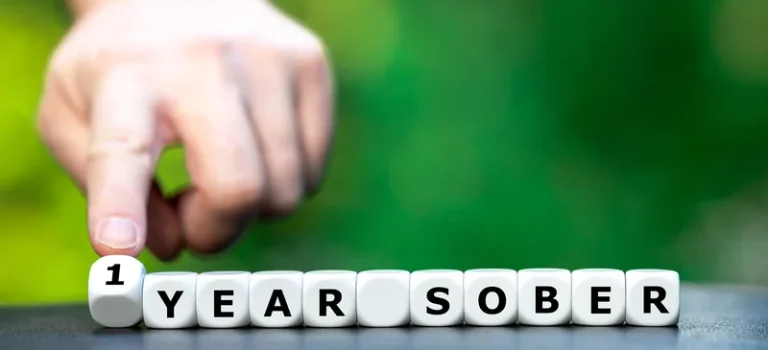
If you have a friend or family member who knows that you’re trying to taper off alcohol, you shouldn’t be afraid to ask for help. They can take you to the hospital or help you get medical support. If you’re struggling with severe alcohol addiction, a medical detox program is your likely best option for tapering off alcohol safely.
What Happens When You Stop Drinking Alcohol
Psychological effects such as anxiety, irritability, depression, and intense cravings for alcohol are common. While most people experience mild symptoms, severe withdrawal symptoms impact about 3-5% of people. Your tapering off plan should also be supervised by medical professionals. Even when using this method to quit drinking, withdrawal symptoms may appear. Key steps to alcohol addiction recovery are acknowledging the problem, seeking professional guidance, and building a supportive network. Strategies such as setting clear goals, avoiding triggers, and engaging in healthier routines are crucial.
- Getting curious about a life without alcohol is already an incredible step, and a healthier lifestyle is within reach.
- Understanding personal drinking habits can be pivotal in the journey to cut back.
- The support of medical professionals and psychologists can help you in this process.
- Birthday parties came and went, and I discovered what it was to really be in the room with the people I love.
Reasons You Should Go To Rehab

When a person has developed a physical dependence on alcohol, quitting can result in withdrawal symptoms that are physically and mentally painful. In some cases, alcohol withdrawal symptoms can be life threatening. It can be tempting to just “rip off the Band-Aid” when getting sober, but tapering off alcohol is often much safer—and much less stressful. Rather than quitting drinking abruptly (or “cold turkey”), many professionals recommend gradually reducing your drinking (or tapering) over time. This can give your body the chance to adjust, helping you avoid the worst of withdrawal symptoms. An alcohol taper can be effective in beginning recovery and help set a realistic goal for those not ready to quit alcohol completely, but they’re not for everyone.
What are some activities I can do instead of drinking?

Having a proactive plan ensures you are well-equipped to manage triggers or cravings without relapsing, strengthening your resolve over time. Setting clear objectives achieves such outcomes, furnishing individuals with a structured framework to focus their efforts and sustain progress throughout their recovery journey. Talking about your addiction fosters self-awareness and builds a support system. Openly discussing addiction with trusted individuals or in support groups, such as Alcoholics Anonymous, creates a sense of accountability and reduces feelings of isolation. Tapering can be a long process that takes weeks or even months to finish.

It’s a time to notice how moods and energy levels fluctuate without alcohol. This reflection can unveil all the positive outcomes of quitting or reducing alcohol intake. Once your alcohol tapering schedule is complete, maintenance begins. You must continue abstaining from alcohol and monitor cravings or urges to drink. Don’t try to go through recovery alone — reach out for help and support. The support of family, friends and others in recovery is crucial during this adjustment period.
Celebrate Milestones on the Path to Sobriety
Some detox programs also offer therapy to prepare you for addiction treatment. Medically assisted detoxification (detox) is an inpatient program that keeps you stabilized during alcohol withdrawals. Staffed by medical professionals, these programs offer 24-hour monitoring so you always have support if any complications arise. Don’t try to reduce your alcohol intake based on what feels right. If you’ve confirmed it is safe for you to wean off alcohol at home, set goals for yourself and make a plan as to how you will achieve those goals. Once you Alcohol Use Disorder know it is medically safe to stop drinking, you should loop in a therapist or addiction specialist.
- Figuring out where to start your alcohol taper schedule can be challenging.
- While most people experience mild symptoms, severe withdrawal symptoms impact about 3-5% of people.
- Regular alcohol consumption can lead to physical dependence as the body adapts to alcohol intake.
- Before a doctor begins a tapering plan with medications, they will assess the medical stability, including vital sign stability, and pattern of withdrawal symptoms in the patient.
- This phenomenon is often described as “alcohol dependence.” The most common more mild withdrawal symptoms include headaches, anxiety, and sleep disturbances.
If you have withdrawal symptoms when you stop how to taper off alcohol drinking, it may be time to learn how to taper off alcohol to avoid withdrawal. Explore if you can get around alcohol withdrawal symptoms with effective strategies and compassionate care. Handling social pressures when trying to quit alcohol involves intentional communication and planning.

Benefits of drinking less alcohol
Also, your insurance should cover addiction treatment services, so look for therapists and/or rehabs in your network to help reduce the costs. Only a licensed medical professional can accurately assess your current condition and whether it’s safe for you to taper down. They will also be able to prescribe you medications that can curb https://ecosoberhouse.com/ your cravings or reduce your withdrawal symptoms. Alcohol is a highly addictive drug, and if you experience setbacks or find it difficult to cut down on your alcohol consumption by yourself, that is normal. If you slip up or return to heavy drinking, try to understand that it is not because you are weak or lack will power.